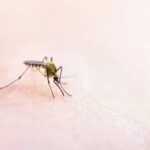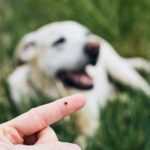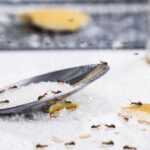Washington State is well-known for its beautiful scenery, Mount Rainier, big tech in Seattle, and no state income tax. Washington is an ideal place to live for many people, with varied geography and lots of fun things to do. If you already live here, or you’re considering a move to the pacific northwest, you should know that there are a few bugs up here. Nothing super deadly or problematic (although, we do have murder hornets here now), but there are some pests for which you’ll want to be on the lookout.
Here are the top 5 worst pests in Washington, plus what you should do if you see them on your property.
Spiders
Washington State is home to numerous spiders. Locals know of “spider season,” which typically starts in the fall and runs until the temperatures begin to cool off significantly. Spiders in the Washington areas generally are not a health concern, although there are two potentially problematic spiders in the area: the yellow sac spider and the black widow. While it’s unlikely that you will suffer any long-term damage from a bite, you should be aware of the possibility that you’ll encounter one of these poisonous spiders on your property.
Termites: One of the Worst Pests in Washington for Damage
Termites cause billions of dollars of damage annually throughout the United States, and Washington State is no exception. There are termites throughout the state. While not super common, dampwood and subterranean termites can colonize and find their way into your home. Unfortunately, these termites feed on the cellulose in the wood, which weakens it. Termites damage can eventually cause structural integrity issues for your home if left unchecked.
Ants
When most people think of ants, they often think of little ant hills outside the house with mostly harmless insects. They might also remember when they left some sugar out, and ants found their way to it. In both instances, the ants are harmless – pests, undoubtedly, but they won’t cause any lasting damage.
However, Washington State has a sizable carpenter ant population. Much like termites, these ants can destroy a structure if left unchecked. If you see these large insects inside, you’ll want to get the problem corrected as soon as possible.
Wasps and Bees
If you walk down any street in Washington, you’ll probably see lots of flowers and other vegetation. You’ll see plenty of trees, as well. The significant plant life in the region is one of the reasons why people love Washington so much. However, all those flowers and plants will attract wasps and bees. This area is no exception. It’s not uncommon to see quite a few bees and wasps circling near plants, the food at picnics, and bushes. Unless you’re allergic, the stings from these insects are not fatal, but they are painful.
Rodents
Washington State has quite a few rodents, such as mice and rats. It’s not uncommon for homes to have these creatures in crawlspaces, attics, and insulation. Rats and mice are not necessarily dangerous, although they can carry diseases that can cause significant issues. For example, deer mice can have hantavirus, which has a mortality rate of approximately 38% in humans. While hantavirus cases are rare in Washington State, there’s often at least one or two people in the state that die from it each year.
Call a Pest Control Company If You Have One of These Worst Pests in Washington
If you encounter any of these worst pests in Washington, please call a pest control company. A talented inspector can come to your home, analyze the situation, and let you know if what you’re seeing will cause structural damage or cause health problems. They can also recommend a course of treatment that will eradicate these pests so you can get back to enjoying life in our beautiful evergreen state!
"*" indicates required fields
"*" indicates required fields




